BIMSTEC Chair Thailand at the fulcrum of South, Southeast Asian trade
BIMSTEC Chair Thailand at the fulcrum of South, Southeast Asian trade
วันที่นำเข้าข้อมูล 23 พ.ค. 2568
วันที่ปรับปรุงข้อมูล 23 พ.ค. 2568
As the host of the sixth Bay of Bengal Initiative for Multi-Sectoral Technical and Economic Cooperation (BIMSTEC) Summit, Thailand reinforced its role as a strategic hub for trade and connectivity between South and Southeast Asia.
Held from April 2nd to 4th, 2025, the summit concluded Thailand’s chairmanship of BIMSTEC with the adoption of the BIMSTEC Bangkok Vision 2030, a framework aimed at transforming the Bay of Bengal region into a dynamic economic corridor.
By championing maritime, digital, and physical connectivity, Thailand is positioning itself as the fulcrum of a more integrated regional economy.
Strengthening regional integration via connectivity
As BIMSTEC’s Lead Country on Connectivity, Thailand has focused on advancing infrastructure and trade linkages that will bolster cross-border commerce.
The BIMSTEC Agreement on Maritime Transport Cooperation, signed ahead of the summit, is expected to streamline shipping networks across the Bay of Bengal, reducing trade costs and facilitating the movement of goods between South and Southeast Asia. With the completion of the India–Myanmar–Thailand Trilateral Highway, Thailand is cementing its position as the primary gateway between the Indian subcontinent and ASEAN, opening new opportunities for trade and investment.
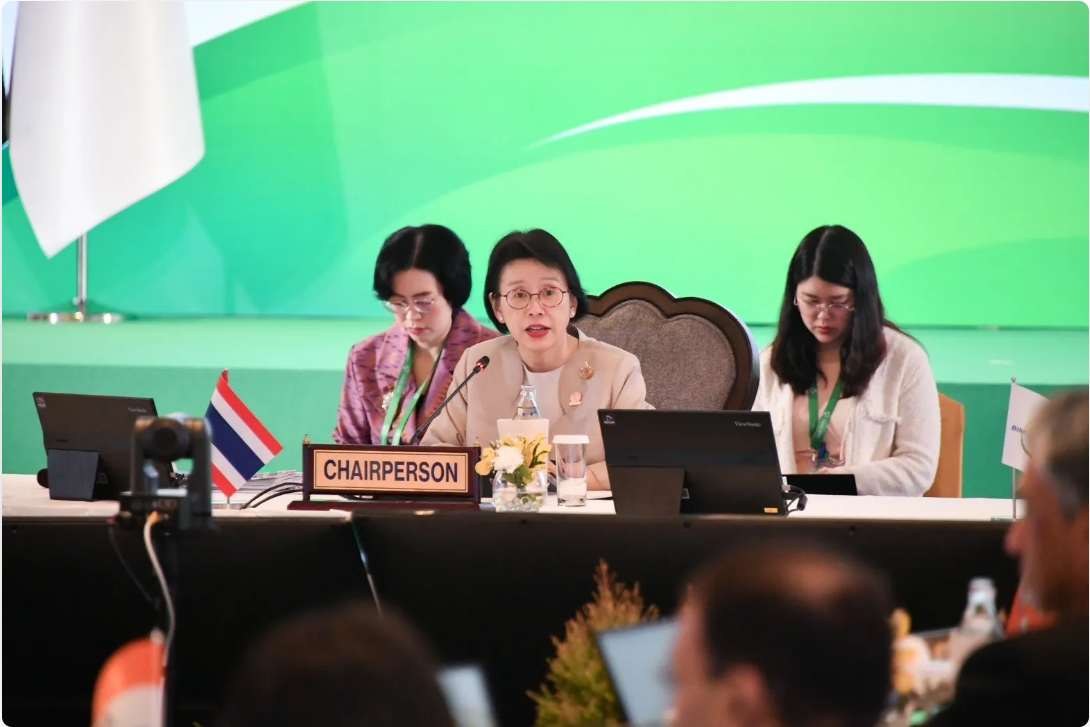 Thailand’s Permanent Secretary for Foreign Affairs Eksiri Pintaruchi chairing the 25th BIMSTEC Senior Officials’ Meeting. Source: Ministry of Foreign Affairs Website
Thailand’s Permanent Secretary for Foreign Affairs Eksiri Pintaruchi chairing the 25th BIMSTEC Senior Officials’ Meeting. Source: Ministry of Foreign Affairs Website
During the 25th BIMSTEC Senior Officials’ Meeting, chaired by Thailand’s Permanent Secretary for Foreign Affairs Eksiri Pintaruchi, Thailand emphasized the need to operationalize these initiatives quickly to enhance supply chain efficiency.
Discussions also highlighted the importance of digital connectivity, with Thailand advocating for greater collaboration in e-commerce, smart logistics, and digital trade facilitation to ensure seamless economic linkages across the Indo-Pacific.
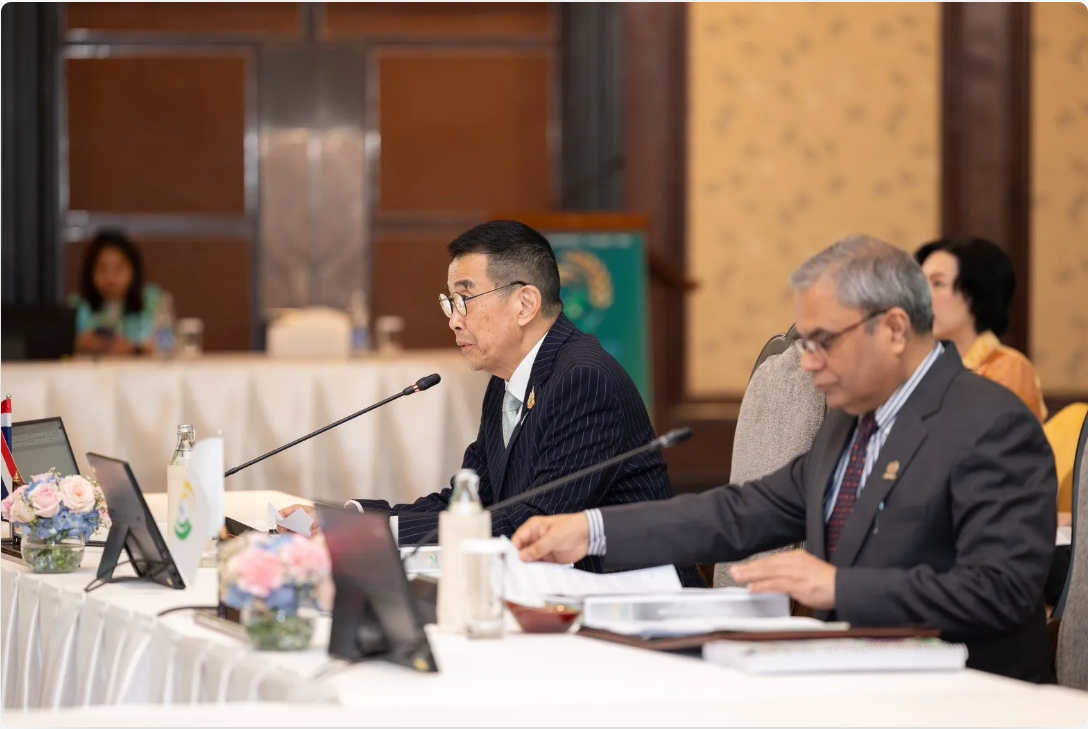 Thai Foreign Minister Maris Sangiampongsa (left) and BIMSTEC Secretary General Indra Mani Pandey (right) at the 20ᵗʰ BIMSTEC Ministerial Meeting. Source: Ministry of Foreign Affairs Website
Thai Foreign Minister Maris Sangiampongsa (left) and BIMSTEC Secretary General Indra Mani Pandey (right) at the 20ᵗʰ BIMSTEC Ministerial Meeting. Source: Ministry of Foreign Affairs Website
At the 20ᵗʰ BIMSTEC Ministerial Meeting, chaired by Thailand’s Minister of Foreign Affairs Maris Sangiampongsa, ministers endorsed 19 key documents encompassing several sectors of regional cooperation, including science, technology & innovation, and human resource development.
Following the devastating March 28th, 2025 earthquake in Myanmar, the agenda also featured cooperation on disaster management.
Sixth BIMSTEC Summit presents unified economic vision
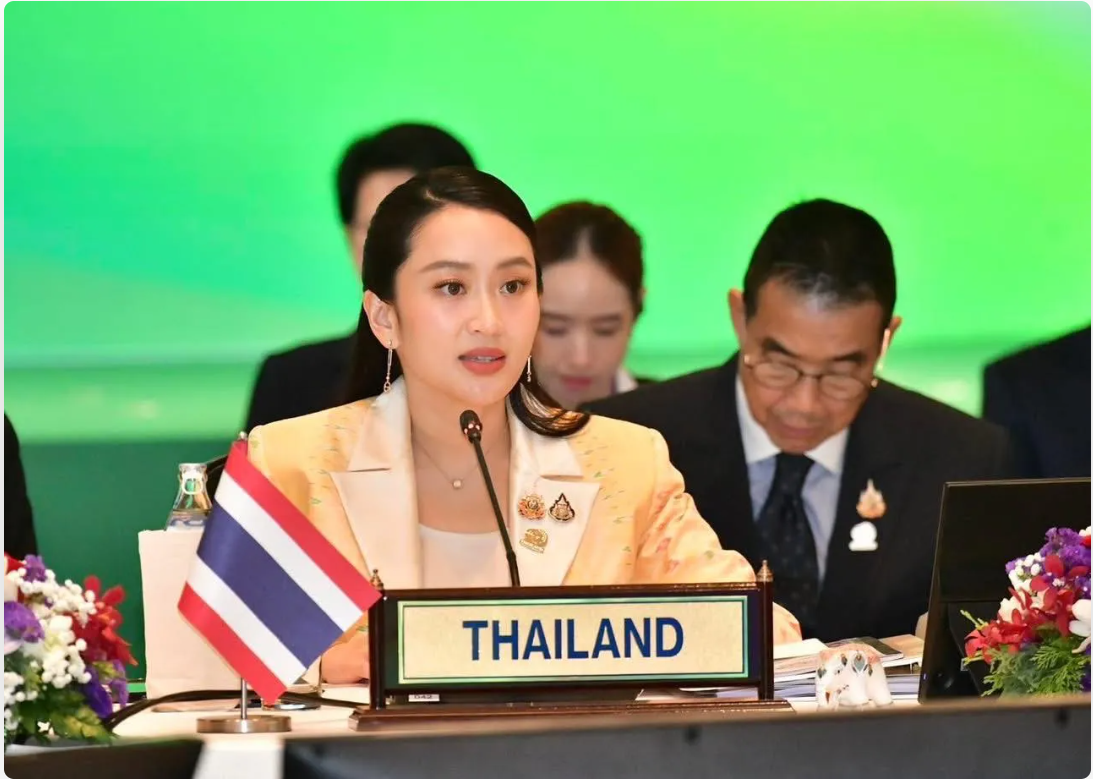 Thailand’s Prime Minister Paetongtarn Shinawatra chairs 6th BIMSTEC Summit in Bangkok. Source: Ministry of Foreign Affairs Facebook Page
Thailand’s Prime Minister Paetongtarn Shinawatra chairs 6th BIMSTEC Summit in Bangkok. Source: Ministry of Foreign Affairs Facebook Page
Chaired by Thai Prime Minister Paetongtarn Shinawatra, the 6th BIMSTEC Summit brought together leaders from seven member states to shape the future of regional cooperation. In a statement to the press, the Thai premier relayed the summit’s endorsed documents, as follows:
1. BIMSTEC Bangkok Vision 2030 – a first-ever long-term roadmap for a “Prosperous, Resilient, and Open BIMSTEC (PRO BIMSTEC)” to enhance the region’s economic integration, connectivity, and human security.
2. 6th BIMSTEC Summit Declaration – reaffirms commitments to the regional bloc and the BIMSTEC Bangkok Vision 2030.
3. Rules of Procedure for BIMSTEC Mechanisms – provides a systematic, rules-based framework for efficient and consistent BIMSTEC operations.
4. Report of the BIMSTEC Eminent Persons’ Group on the Future Direction of BIMSTEC – offers expert recommendations that the BIMSTEC Secretariat says aim to “reform, revitalize, and repurpose BIMSTEC.”
5. BIMSTEC Agreement on Maritime Transport Cooperation – is poised to significantly enhance maritime connectivity between member countries (namely, Bangladesh, Bhutan, India, Myanmar, Nepal, Sri Lanka, and Thailand), reducing costs and improving logistical efficiency.
6. BIMSTEC Leaders’ Joint Statement on the Impact of the Earthquake in Myanmar and Thailand – expresses the bloc’s condolences, solidarity, and commitment to aiding affected countries, reflecting collaboration on disaster management and natural disaster response mechanisms.
In her statement to the press, Prime Minister Paetongtarn underlined the tangible benefits that Thai people and businesses can expect:
“The outcomes of this Summit will also deliver concrete and tangible benefits to the Thai people. The Agreement on Maritime Transport Cooperation will reduce shipping costs and improve supply chain efficiency — making Thai exports more competitive and create new market and investment opportunities. Enhanced people-to-people exchanges through tourism and cultural cooperation will boost Thailand’s tourism sector and create new job opportunities. Ultimately, these outcomes will translate into greater economic opportunities and improved livelihoods for the Thai people.”
– Press Statement by H.E. Ms. Paetongtarn Shinawatra,
Prime Minister of the Kingdom of Thailand at the conclusion of the 6th BIMSTEC Summit
BIMSTEC closes ranks amid geopolitical and trade uncertainty
“Given the current international circumstances and regional challenges, BIMSTEC will fortify our cooperation and collective actions,” said Prime Minister Paetongtarn, referencing recent trade disruptions, protectionist measures, and geopolitical conflicts.
As Thailand passed the baton of BIMSTEC chairmanship to Bangladesh, it cemented its leadership in the area of connectivity and regional integration.
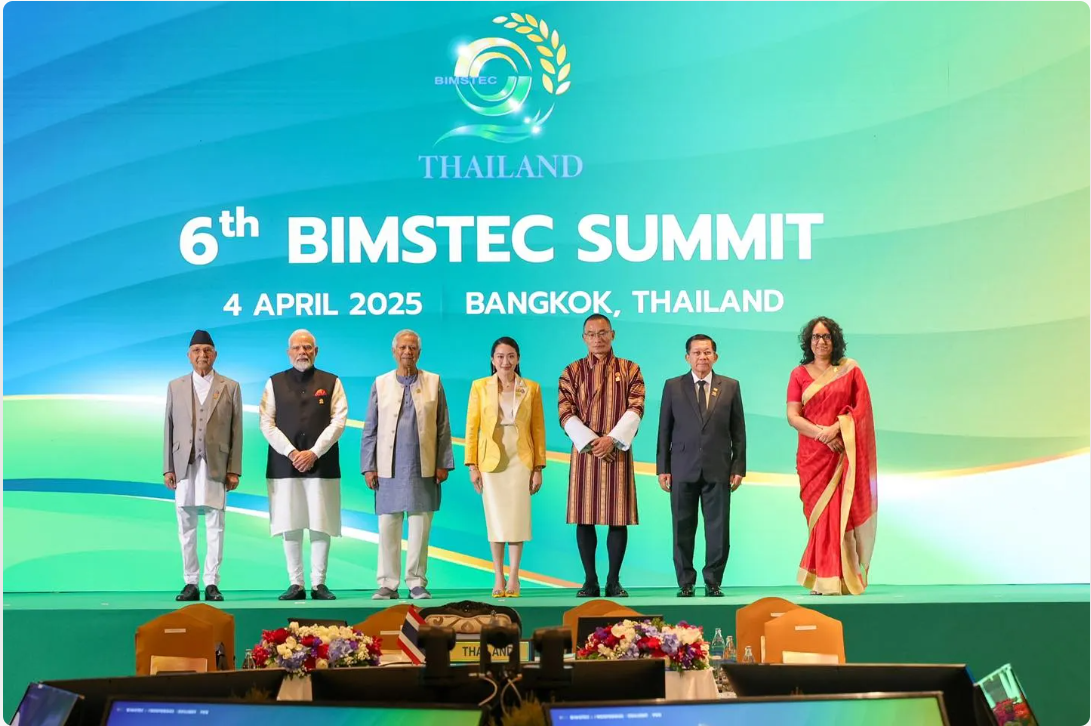
The leaders of BIMSTEC member nations (left to right): Nepal, India, Bangladesh, Thailand, Bhutan, Myanmar, and Sri Lanka. Source: Ministry of Foreign Affairs Facebook Page
| Source: | 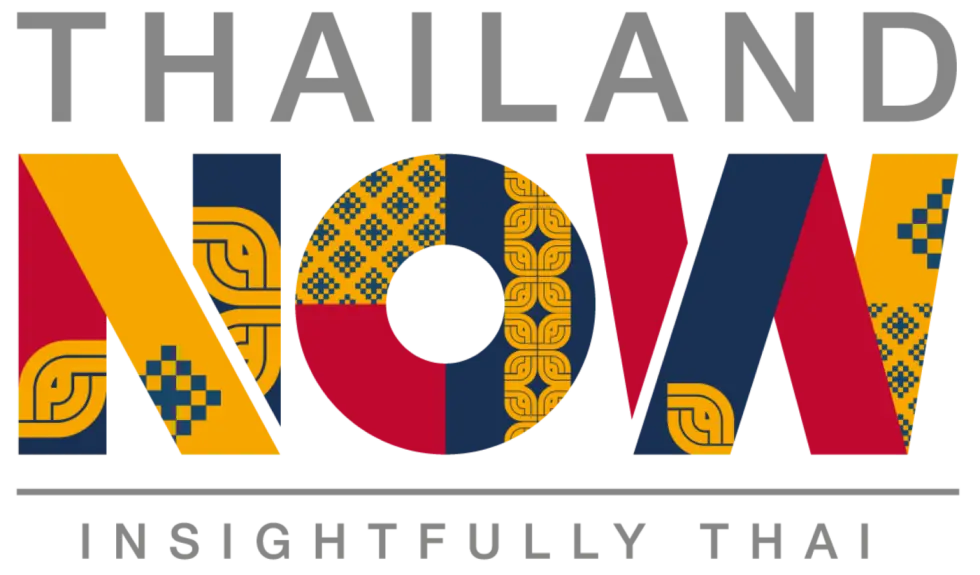 |
Thailand Trade and Economic Office (Taipei)
| เวลาทำการ |
วันจันทร์ - ศุกร์ | 9:00-12:00, 14:00-17:00 |
|
| 🕿 | บริการคนไทย | (8862) 2775 2211 |
| Thai Visa | (8862) 2773 1100 | |
| 🖷 | Fax | (8862) 2740-3300 |
| 🖅 | General Affairs | [email protected] |
| บริการคนไทย | [email protected] | |
| Thai Visa | [email protected] | |